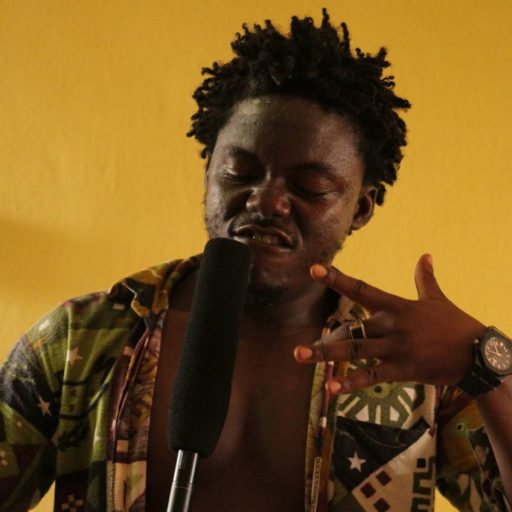Konya Shamsrumi: What is the process of writing a poem like for you? Is it a lot of hard work or easy?
Cheswayo Mphanza: If there is no difficulty in the creation, then why bother? The process of writing for me is important because it sets the tone for intentionality. And how we execute our intentions says a lot about the difficulty or laziness in which we go through the process of our writing. My writing is research-based. I am always working with historical figures, events, etc. Thinking about these things anachronistically helps me find a freedom in writing that I enjoy. It is not so much about bringing these figures to the forefront, but more so reconfiguring how we can think about writing as an ongoing and intersectional conversation. I am always aiming to be in conversation.
Konya Shamsrumi: Please describe your sense of identity in this or any possible world in imagery or metaphor?
Cheswayo Mphanza: My sense of identity is always informed by my Blackness. With that, I attempt to tether myself to all aspects of my blackness. All the worlds, possibilities, and impossibilities that it conjures. I am listening to everything that my body tells me about what it means to be in this body. And I wish to resound all of that through my writing.
Konya Shamsrumi: If any of your poems could literarily save a person’s life, which poem would it be and can you describe the person whose life you think it would have saved?
Cheswayo Mphanza: I don’t know how to answer this question because it does not make sense to my line of thought in regards to writing creatively and critically. I don’t romanticize any of my work in that manner.
Konya Shamsrumi: What does Africa mean to you, as potential or reality?

Cheswayo Mphanza: Africa, specifically Zambia, is the compass which I am always following or returning to. This is a moment to exercise our potential in African letters. I am excited to see how we reconcile with all that conjures for us historically and in this contemporary moment.
Konya Shamsrumi: Could you share with us one poem you’ve been most impressed or fascinated by? Tell us why and share favorite lines from it.
Cheswayo Mphanza: I am always returning to Lynda Hull’s “Ornithology” which has taught me so much about music, pacing, and rhythm in a poem. The poem can be a live thing being molded and reacting to your creation of it in real time. It reminds me that what I am doing requires a respect for the act of creation. “That/poured-on dress/ I lived days/ and nights inside,/ made love/ and slept in, a mesh and slur of zipper/ down the back.”
Cheswayo Mphanza was born in Lusaka, Zambia and raised in Chicago, Illinois. His work has been featured in the New England Review, The Paris Review, Lolwe, New Orleans Review, American Literary Review, Hayden’s Ferry Review, Birdfeast, Vinyl, Prairie Schooner, and RHINO. He has received fellowships from the Bread Loaf Writers Conference, Hurston/Wright Foundation, Callaloo, Cave Canem, and Columbia University. A finalist for the Brunel International African Poetry Prize and a recipient of the 2017 Hurston/Wright Award for College Writers, his debut collection The Rinehart Frames (University of Nebraska Press), winner of the Sillerman First Book Prize for African Poets, is forthcoming in 2021. He earned his MFA from Rutgers-Newark
- Poets Talk: 5 Questions with Hauwa Saleh - May 14, 2024
- Poets Talk: 5 Questions with Daisy Odey - September 5, 2023
- Poets Talk: 5 Questions with Dare Tunmise - August 15, 2023

















Leave a Reply